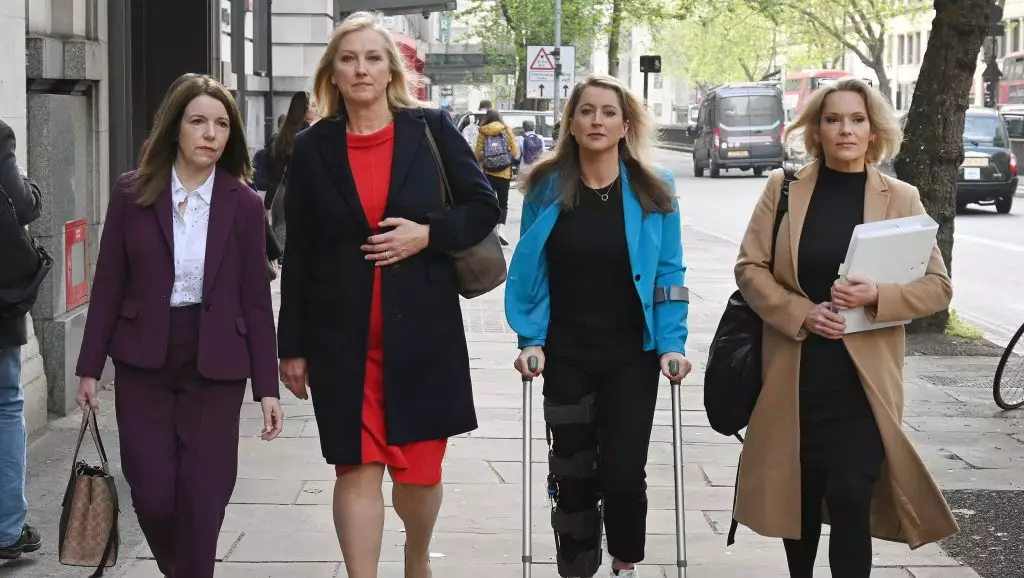The recent controversy surrounding four female BBC News presenters has shed light on a tumultuous situation within the UK broadcaster. Martine Croxall, Karin Giannone, Kasia Madera, and Annita McVeigh have taken legal action against the BBC, alleging that they were unfairly treated and discriminated against in a “rigged” recruitment process.
The women, all seasoned BBC News anchors, have come forward with claims of age and sex discrimination, equal pay concerns, and harassment within the workplace. They have stated that they were forced off air for a year following a hiring process that they believe was predetermined by management. This alleged mistreatment led to negative physical and mental health impacts on the presenters, as confirmed by clinical psychologists’ reports.
Despite the serious allegations put forth by Croxall, Giannone, Madera, and McVeigh, the BBC has stood by its recruitment process. An internal HR investigation conducted by the broadcaster concluded that successful chief presenters were not guaranteed their roles before an open hiring procedure. However, the women maintain that they have evidence supporting their claims, including a whistleblower statement that highlights discrepancies in the hiring process.
BBC director general Tim Davie has been implicated in the proceedings, with the presenters alleging that he made concerning comments about the tenure of news channel staff. According to witness statements, Davie suggested that certain individuals had been at the news channels for too long, implying a bias against long-serving employees. These revelations have added another layer of complexity to an already contentious legal battle.
The allegations made by Croxall, Giannone, Madera, and McVeigh are damaging to the reputation of the BBC. This legal battle represents one of the highest-profile tribunals faced by the corporation since a landmark gender pay dispute in 2020. The women have emphasized the importance of addressing equal pay claims in the context of their overall grievances, signaling a broader push for workplace equality within the broadcaster.
As the legal battle unfolds, the implications for both the BBC and its employees remain significant. The allegations put forth by the four female presenters highlight systemic issues within the broadcaster that must be addressed. The outcome of this case could have far-reaching consequences for workplace practices and equality standards at the BBC and beyond.

